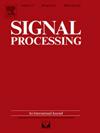A sparse low-rank matrix recovery strategy to deal with robust identification for multi-model systems with time-varying delays
IF 3.6
2区 工程技术
Q2 ENGINEERING, ELECTRICAL & ELECTRONIC
引用次数: 0
Abstract
A robust identification problem for multi-model systems with time-vary delays is considered in this article, where the linear parameter varying model is employed to present the structure of the multi-model systems. To handle outliers in the collected data, we establish an observation model based on a robust principal component analysis (RPCA) algorithm for low-rank matrix recovery. Construct a high-dimensional information matrix using multi-batch measured data. Although this matrix is typically high-dimensional and low-rank, outliers cause it to become high-dimensional and high-rank. By applying the RPCA algorithm, we restore the information matrix to its low-rank form, thus isolating the pure collected data. This process allows us to select a batch of collected data as information vectors for parameter identification. A Markov chain model is established to describe the correlation between time delays. Given the complexity of optimizing log-likelihood functions directly, we derive the estimation problem of model parameters and time delays under the framework of the expectation maximization (EM) algorithm. Therefore, an EM identification algorithm based on RPCA (RPCA-EM) is derived. A numerical simulation and an example involving a continuous stirred tank reactor verify the effectiveness of the proposed RPCA-EM algorithm.
处理具有时变延迟的多模型系统鲁棒识别的稀疏低阶矩阵恢复策略
本文考虑了具有时变延迟的多模型系统的鲁棒识别问题,其中采用了线性参数变化模型来呈现多模型系统的结构。为了处理收集到的数据中的异常值,我们建立了一个基于鲁棒主成分分析(RPCA)算法的观测模型,用于低秩矩阵恢复。利用多批次测量数据构建高维信息矩阵。虽然该矩阵通常是高维低秩的,但异常值会使其变成高维高秩矩阵。通过应用 RPCA 算法,我们将信息矩阵还原为低秩形式,从而分离出纯净的采集数据。通过这一过程,我们可以选择一批采集数据作为参数识别的信息向量。建立马尔科夫链模型来描述时间延迟之间的相关性。考虑到直接优化对数似然函数的复杂性,我们在期望最大化(EM)算法框架下推导出模型参数和时间延迟的估计问题。因此,我们推导出了基于 RPCA 的 EM 识别算法(RPCA-EM)。一个数值模拟和一个涉及连续搅拌罐反应器的实例验证了所提出的 RPCA-EM 算法的有效性。
本文章由计算机程序翻译,如有差异,请以英文原文为准。
求助全文
约1分钟内获得全文
求助全文
来源期刊

Signal Processing
工程技术-工程:电子与电气
CiteScore
9.20
自引率
9.10%
发文量
309
审稿时长
41 days
期刊介绍:
Signal Processing incorporates all aspects of the theory and practice of signal processing. It features original research work, tutorial and review articles, and accounts of practical developments. It is intended for a rapid dissemination of knowledge and experience to engineers and scientists working in the research, development or practical application of signal processing.
Subject areas covered by the journal include: Signal Theory; Stochastic Processes; Detection and Estimation; Spectral Analysis; Filtering; Signal Processing Systems; Software Developments; Image Processing; Pattern Recognition; Optical Signal Processing; Digital Signal Processing; Multi-dimensional Signal Processing; Communication Signal Processing; Biomedical Signal Processing; Geophysical and Astrophysical Signal Processing; Earth Resources Signal Processing; Acoustic and Vibration Signal Processing; Data Processing; Remote Sensing; Signal Processing Technology; Radar Signal Processing; Sonar Signal Processing; Industrial Applications; New Applications.
 求助内容:
求助内容: 应助结果提醒方式:
应助结果提醒方式:


